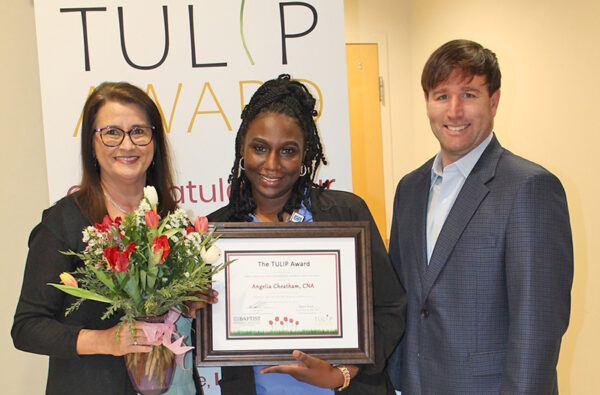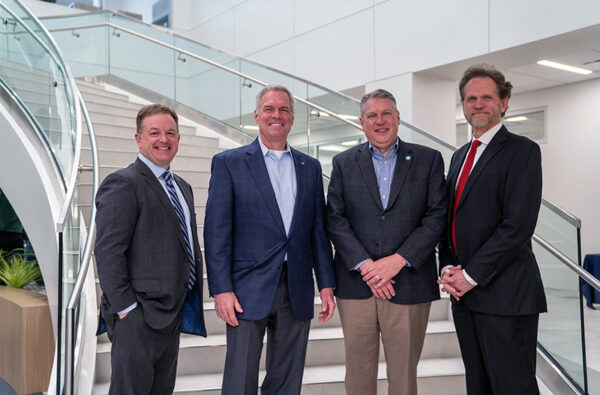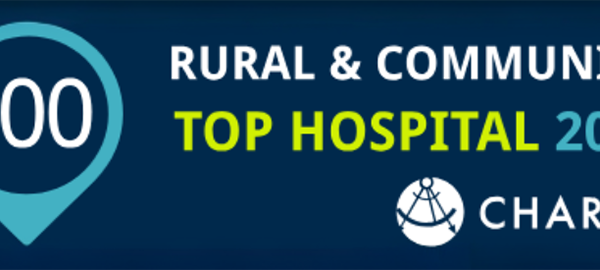September is National Recovery Month, a time to increase awareness of addiction treatments and support recovery communities and the providers who help make recovery a viable option. Baptist Memorial Health Care has taken a unique approach to treating substance use disorder with the Center of Excellence in Addiction Medicine, which is expanding to include more hospitals.
The Center of Excellence in Addiction Medicine allows patients to begin treatment when they need it most, often in the ER, and provides continuous care during the recovery process with the assistance of Vertava Health and MississippiCare.
Baptist Memphis Chief Operating Officer Samuel Pieh and Project Manager Sierra Butler, who works with the Health Resources and Services Administration (HRSA) rural implementation grant, share more about how the Center of Excellence in Addiction Medicine is helping to make a difference for patients with addictions.
What happens when a hospital patient is identified as needing help with addiction?
Samuel Pieh:
In the Emergency Department (ED), physicians respond to the most emergent or urgent needs, assess patients for possible alcohol or drug misuse, evaluate medications, and look for physical or other underlying health problems. Patients with substance use disorder often present with respiratory- or cardiac-related symptoms, which may be caused by substance misuse or underlying physiological changes that create life-threatening situations. Upon further assessment, coexisting issues may be found that contributed to the ED visit.
A thorough medical history provides a snapshot to include social and recreational history to identify a pattern of addiction. Most patients are reserved about discussing recreational drug use and will not initially say, “I just got through using drugs.” Identifying addictive behavior requires patient dialogue and collaboration among the health care team. We use screening tools and evaluations to determine an appropriate diagnosis.
Once substance misuse or abuse is identified, we have an initial conversation with the patient. The recovery process is patient driven and requires a volitional, sustained effort. The best time to engage patients to seek help is when they are at their lowest level and receptive to change.
Our first step is to set up a tele visit through our fellowship program to establish a dialogue. Available program options are coordinated and discussed to immediately help patients. Baptist offers 24/7 addiction medicine care through a tele-addiction consult service operated by our fellowship grant and in collaboration with our board-certified addiction medicine doctor at Vertava Health.
It’s also very important to set up a follow-up visit right away. Setting appointments too far out results in high no-show rates. However, if it’s the next day or same day, near the patient’s home, easy and accessible, participation significantly increases. We schedule these visits with Vertava Health and MississippiCare. The services become outpatient care with follow-ups on an ongoing basis.
We have a unique, first-of-its-kind of program for identifying and treating substance and alcohol misuse. It’s an all-inclusive service, from an emergent standpoint, to follow-up care. We can readily provide patients the service they need where they are located. We help provide coverage within the ED and inpatient and outpatient settings.
What encompasses the Center of Excellence in Addiction Medicine?
We have specialist nurse care managers, social workers, addiction medicine specialists and providers, including those in the ED. Our relationships with MississippiCare and Vertava Health expand our access to behavioral health specialists and inpatient facilities.
The Center of Excellence treats all types of addiction – nicotine, alcohol, opioids, cocaine, cannabis and destructive behavioral addictions.
Sierra Butler:
Within our Center of Excellence, we have two grants. We have our fellowship grant, and we have a grant for our role in rural West Tennessee hospitals. It’s an implementation grant, and I’m the project manager and work with the Center of Excellence connecting them all.
By the end of next fiscal year, the goal is to be live in all Baptist Memorial Health Care hospitals that have an ED, except for Baptist Children’s Hospital because of the patient population, and Baptist Golden Triangle, which has a separate addiction medicine program. We are now live in 11 hospitals and have six hospitals left that will go live in the next fiscal year.
Samuel Pieh:
And as far as services, everybody has the same level of access to the same services. The big difference is the amount that is utilized. Memphis is a large metropolitan area; we utilize the services a lot more than some of the smaller facilities.
How is the Center of Excellence in Addiction Medicine different from typical treatment options for addiction?
Samuel Pieh:
The key difference is that our patients have access to services starting in the ED to follow-up care outside of the hospital near their home. With access to a broad pool of specialists, we can manage all aspects of care, address most of the root causes of addiction, and facilitate social and behavioral changes needed for recovery.
We’re trying to give patients different tactics to change their entire lifestyle in a sustainable way. Through MississippiCare and Vertava Health, we can monitor our patients and provide continual care beyond that initial ED visit or inpatient treatment.
Sierra Butler:
Going into this agreement with MississippiCare and Vertava Health, we made sure that they would see patients regardless of payer status.
Samuel Pieh:
That is a huge, huge win for the communities to help them have access to treatment and recovery.
Is there anything you’d like to add?
Sierra Butler:
In West Tennessee, we’re excited to have this resource because prior to this, we lacked significantly in care for our patients with addiction.
We’re helping to educate our providers to make them more aware of addiction issues, and we’ve identified Champions in each entity. Our Champions push the messaging out when needed. Our primary Champions are providers in the ED, and some of our secondary champions are our frontline nurses.
Last month, we were able to help make everyone aware of International Overdose Awareness Day on Aug. 31, to honor those who have been lost and remind team members of the services offered by the Center of Excellence in Addiction Medicine.
Samuel Pieh:
We want to focus on destigmatizing addiction and encouraging individuals to come out and share that information. We cannot treat something unless one admits to it and is willing and ready to face it. We cannot make the progress that we need to make unless we address individuals at their greatest time of need.
Behavioral and addiction problems are often missed. We have an opportunity to better identify them across the system and across the country, not just at our hospitals.






